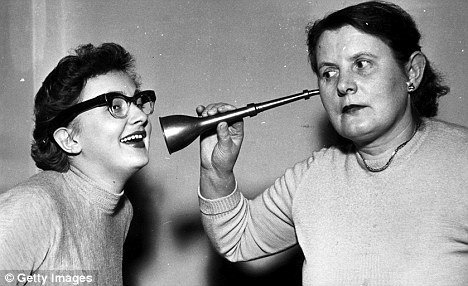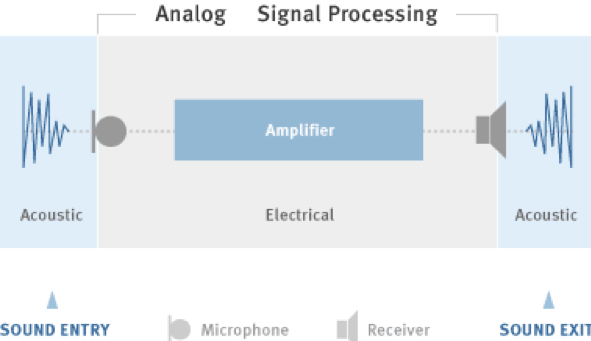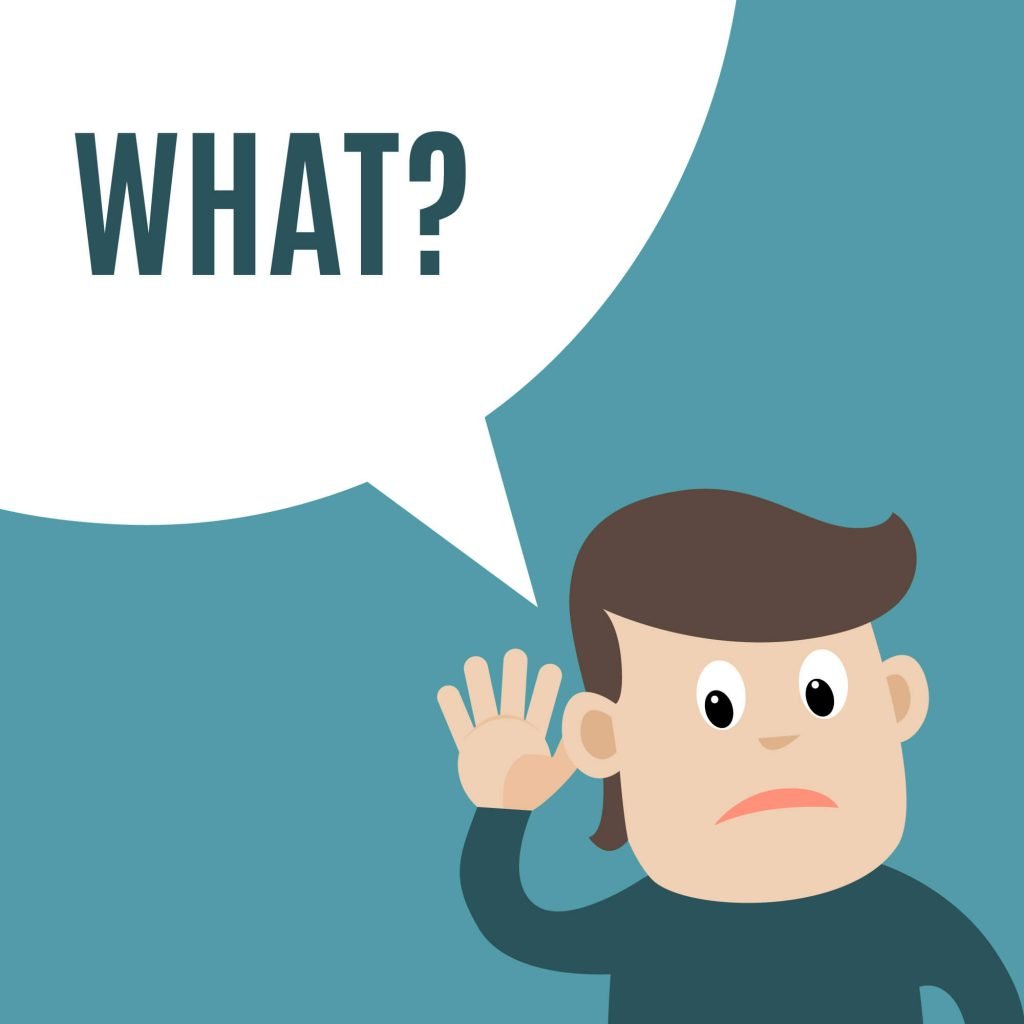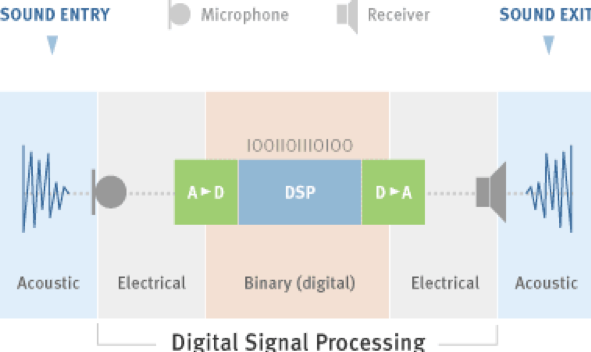From analog to digital
Since the ear trumpet was invented on17th century, hearing aids have never stopped innovation.

In 1980, the birth of digital hearing aid brought greater hearing quality. Since then, digital hearing aids became more popular and well known by most users.
Today we are going to discuss how you, as a purchaser, choose the right products for your market between analog and digital.
How analog hearing aids work
Analog hearing aids are relatively primitive. For hearing aids, the key components are microphone, receivers and amplifier/processer. For analog, the amplifier just amplifies and outputs the sounds at a louder volume, which means all sounds are amplified equally.

Since the sound is not digitally processed, some people think that analog hearing aids provide a more natural sound than digital hearing aids. They are often preferred by enthusiasts and musicians because analog devices are more suitable for listening to music. Same reason that some music fans prefer vinyl records instead of digital records.
The sound of the analog hearing aid may be more natural. The problem is that, the noise is amplified in the same proportion, which makes the user unable to hear in the noisy environment.

How digital hearing aids work:
Before 1980s, analog hearing aids were the only option, when digital models were introduced.
Digital hearing aids work by passing sound through a DSP, or Digital Signal Processor. The processor is basically a tiny computer inside the device, which could handle digital signal per needs. For example, reduce some amplification at high frequencies to reduce feedback.

As shown in the above image, the microphone mainly collects the acoustic signal into an electrical signal, and the chip processes the electrical signal, then the receiver reconverts the processed electrical signal into the acoustic signal heard by our ears.
The core is the DSP/chip. For the chip, there are different channels from 2 channels to 16 channels and more. Each channel is an independent sound processing unit that can independently process sounds at the same time.
Here is a quote from Phillps from Audicas on the concept of channels: “Channels break up the frequency range into individual channels. This allows the hearing aid to differentiate noise from speech. The more channels the hearing aid has the more fine tuned it can be. For instance the sound of keys falling on a table, or water running in the sink may be overwhelming. When your hearing aid offers many channels we can adjust each frequency that is too loud without sacrificing the things you want to hear, like your spouse or boss.”—-Philips
Advantages of digital hearing aids:
Digital hearing aids offer many advanced capabilities and benefits that aren’t possible with analog technology.
In terms of sound quality, digital hearing aids can help users to amplify the desired sound and filter out unwanted sounds. The digital hearing aids have a better performance on noise reduction and feedback suppression.
Since not all sounds are amplified at the same level, digital hearing aids can compensate people’s hearing loss more specifically. The greater flexibility in programming help with audiologist’s fitting, matching digital hearing aids with hearing loss individually.
In addition, digital hearing aids offer greater features with the combination of new things. For example, with a directional microphone, the user could focus more on the desired sound. New technologies such as Bluetooth, rechargeability, remote fitting has also been applied in advanced digital hearing aids. In the near future, digital hearing aids may become more intelligent, perhaps becoming wearable devices that are more relevant to people’s health.
General comparasion
| Analog | Digital | |
| Core component | amplifier | DSP(digital sound processor) |
| How it works | simply amplify all sounds at the same proportion | digitally process signel |
| Function | rather basic | Provides greater flexibility and functionality to make it the most configurable for individual users. |
| Popularity in the market | In some price-conscious markets, analog hearing aids dominate. | Most of the hearing aids currently sold in the United States are digital. |
| Prons | Affordable Sounds are more “natural” | less feedback, better sound clarity, can be programmed with different environment settings. |
| Cons | can’t hear clearly in noisy situation | higher price |
In general, the performance of digital hearing aids is better, and there is much room for improvement in the future. And this does not mean that we should completely say “NO” to analog hearing aid. As a purchase, you may observe the hot products in your local market, analyze the features that users like, and then purchase a suitable hearing aid. Any question or discussion on product selection is welcom by AZ Hearing.
Resources:
https://audiorecovery.com/blog/difference-between-analog-and-digital-hearing-aids/
https://www.fda.gov/medical-devices/hearing-aids/types-hearing-aids#3

The best part of your blog is when you said that digital hearing aids offer better performance on noise reduction, and they can filter out unwanted sounds. My mother is planning to see a specialist to get help in finding the right hearing aids for her. She has been suffering from hearing loss since she had an auto accident 4 months ago. I will be sure to share this with her so she can prioritize her comfort.
Thanks for comment. Good luck to you and your mother.
The best part of your blog is when you said that digital hearing aids could amplify the desired sound and filter out unwanted sounds. My mother has been showing signs of hearing loss, so she is interested in finding the right type of hearing aids for her. She wanted to be comfortable while wearing them, so it would be nice for her to consider your tips.
Yes, if you can, please visit an audiologist and get digital hearing aids for your mother. Wish you a happy life~
I’ve got cookie bite loss in both ears .have worn analogue for 6 yrs but not working so well now even after adjustment by audio.
Is there a recommended aid for my type of loss or is it through the adjustment only
Hello, you could ask your doctor for help, they are more professional.